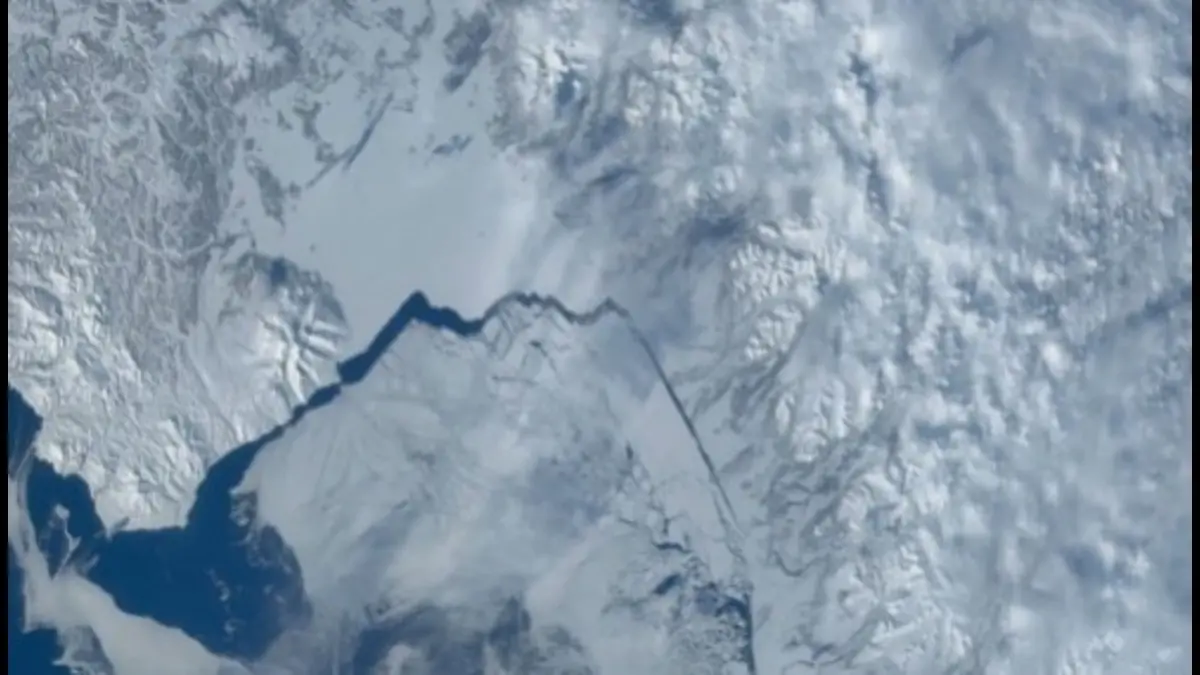Updated 2 April 2025 at 14:32 IST
First-Ever Video of Earth's Polar Region from Space : Fram2 Mission's Historic Milestone | WATCH
SpaceX shared the video from Fram2 mission on social media, calling it "First views of Earth's polar regions from Dragon."
- Science News
- 2 min read

New Delhi: Tech billionaire Elon Musk's SpaceX has reached a historic milestone with the Fram2 mission, as astronauts captured the first-ever video of Earth's polar regions from space. For the first time, the astronauts orbited Earth at a 90-degree angle, crossing both the North and South Poles.
The footage, captured aboard the Dragon Resilience spacecraft, presents breathtaking views of the planet's icy polar caps, volcanoes, glaciers, and colossal icebergs, offering a unique perspective never before seen in human spaceflight.
Earth's Polar Region From Space | WATCH
Elon Musk shared the video on his X account, he remarked on the importance of Fram2 mission by saying, “The first astronauts to orbit the poles.”
SpaceX shared the video on social media, calling it "First views of Earth's polar regions from Dragon," captivating audiences around the globe.
Advertisement
The Fram2 mission, operated by SpaceX with a Crew Dragon spacecraft and lead by Maltese entrepreneur Chun Wang, the crew includes Norwegian vehicle commander Jannicke Mikkelsen, German pilot Rabea Rogge, and Australian medical officer Eric Philips—all on their inaugural spaceflight.
The mission is named after the Norwegian ship that pioneered polar exploration in the 19th century, launched on March 31, 2025, from NASA's Kennedy Space Center in Florida.
Advertisement
Fram2 Mission
The mission aims to study Earth's poles and their space environment. It is a free-flight mission of the Crew Dragon spacecraft, equipped with the panoramic cupola attachment that debuted on Inspiration4.
Flying at an altitude of around 425-450 kilometers, the spacecraft offers unmatched views of Earth's polar ice sheets and atmospheric phenomena.
Beyond its visual accomplishments, the Fram2 mission is also conducting 22 scientific experiments throughout its three-to-five-day journey. These experiments aim to expand our understanding of various space phenomena and human biology.
One of the key objectives is to observe aurora-like phenomena such as STEVE and green fragments. Additionally, the mission will feature the first-ever X-ray of a human in space, providing valuable data on the effects of space travel on the human body.
The crew will also attempt to grow oyster mushrooms, marking the first time mushrooms have been cultivated in space. German pilot Rabea Rogge will also transmit a series of slow-scan television images over amateur radio, engaging educational groups participating in an event called Fram2Ham.
Published By : Snehal Jaiswal
Published On: 2 April 2025 at 14:32 IST
